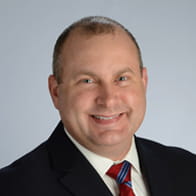
Refractory Migraine Surgery
What is migraine surgery?
The procedure
Risks and safety
The risks of migraine surgery include:
- Bleeding
- Contour deformities
- Deep vein thrombosis (DVT), which occurs when a blood clot forms in a vein
- Facial asymmetry
- Infection
- Permanent numbness or changes in skin sensation
- Persistent headaches
- Pulmonary embolism (PE), a blockage in one of the pulmonary arteries in your lungs
- Risks associated with anesthesia
Recovery after surgery
Cost
The overall cost of migraine surgery varies, with an average total cost between $5,000-$15,000. This includes facility, surgeon and anesthesia fees, as well as other associated costs. Depending on your health insurance, the surgery may be partially or fully covered.
Learn more about plastic surgery at The University of Kansas Health System.

David M Megee, MD
Hand Surgery, Plastic Surgery
Board certifications: Surgery of the Hand, Plastic Surgery
Fellowship: Hand surgery
We offer a variety of appointment types. Learn more or call 913-588-1227 to schedule now.




